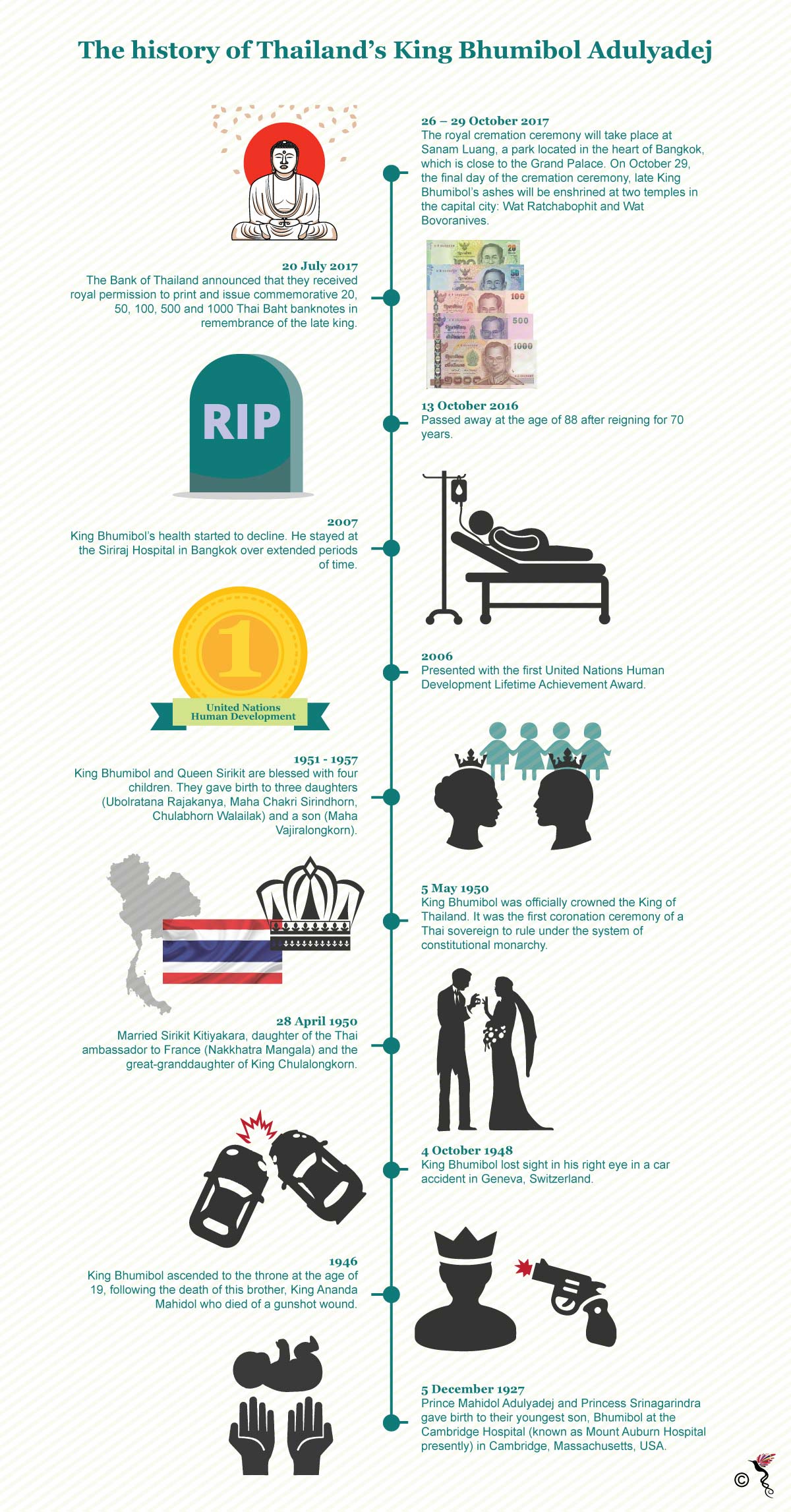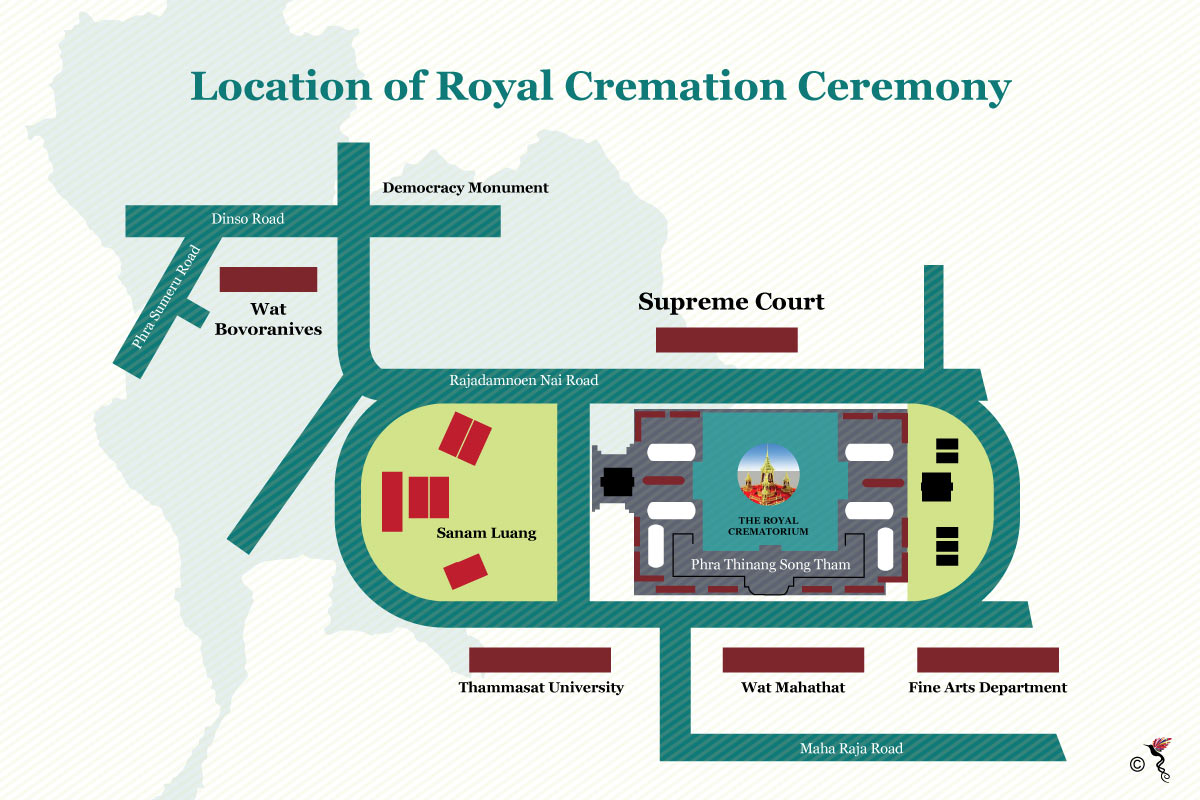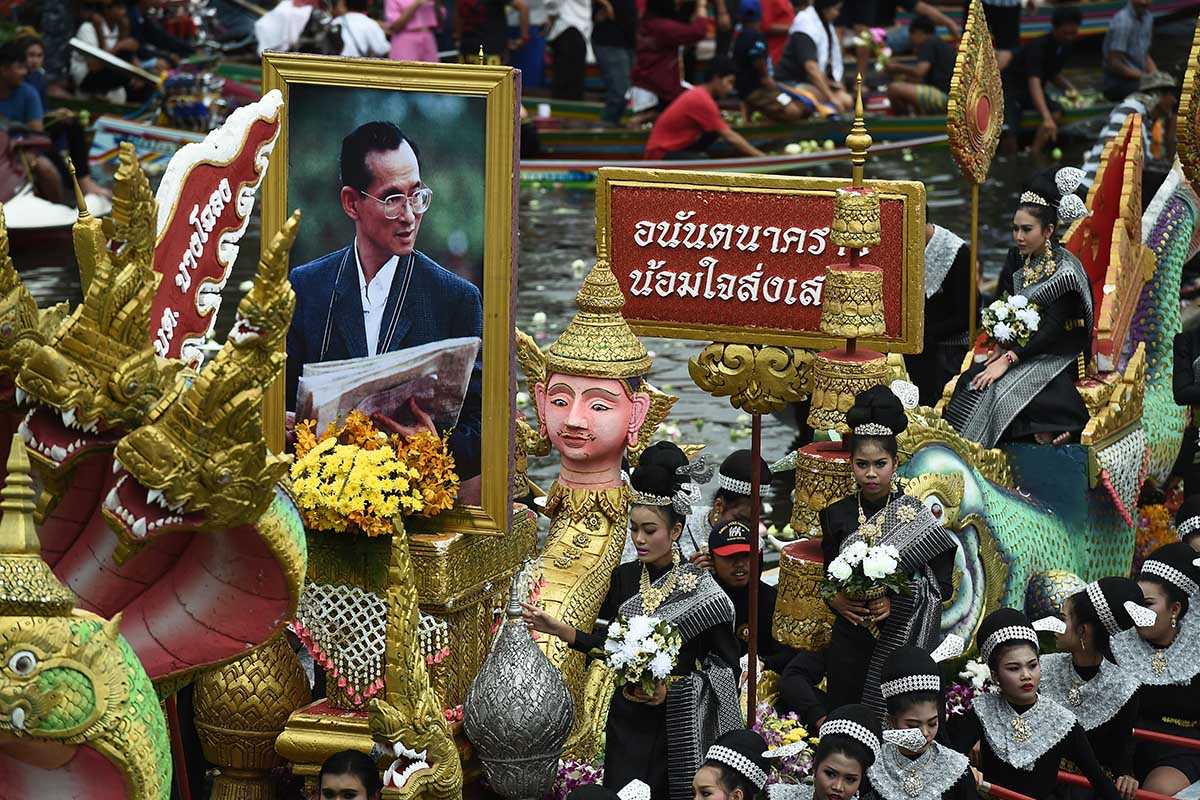“His passing means the Thailand that many Thais and I have known has come to an end.”
This was one of the first things that Thitinan Pongsudhirak from the Institute of Security and International Studies (ISIS) of Chulalongkorn University, Thailand said when The ASEAN Post contacted him for a comment on the passing of Thailand's late monarch.
King Bhumibol Adulyadej, Rama IX was the world’s longest-reigning monarch at the time of his death. He was the ninth king in the 200-year old Chakri Dynasty – one of the world’s wealthiest monarchies. During his 70-year reign, Bhumibol served as a stabilising force in times of political turmoil and tensions in Thailand.
Although it has been almost a year since Bhumibol passed away, the Thai people, like Pongsudhirak are still mourning the loss of their revered king. In the past year, approximately 11 million Thais clad-in-black have visited the Temple of the Emerald Buddha in the Grand Palace where he is lying in state, to pay their last respect to the king before his royal cremation ceremony end of October.

The life and death of Thailand's late King Bhumibol Adulyadej.
According to Thitinan, Bhumibol received “reverence and respect that was organic and bottom up.” In carrying out his responsibilities as the nation’s king, he travelled all over Thailand advocating better “education, healthcare, water management, infrastructure development and various other projects for public welfare.” His strong and steady leadership earned him tremendous moral authority which made him a cherished figure among the Thai community.
In a press statement released by UN (United Nations), Secretary-General Ban Ki-moon said, “a visionary and a humanitarian, King Bhumibol was loved and revered by the people of Thailand and respected around the world.” In another press statement, Britain prime minister Theresa May have said, “his Majesty guided the Kingdom of Thailand with dignity, dedication and vision throughout his life. He will be greatly missed.” This evidently shows that the late king was not only adored by his own people as a devoted leader, but by other leaders worldwide as well.
Moreover, Thailand’s monarchy is curbed under the nation’s “lese-majeste” law, whereby under the Section 112 of the Thai Criminal Code, “whoever defames, insults or threatens the king, the queen, the heir-apparent or the regent, shall be punished with imprisonment of three to fifteen years." The role of the monarch is considered very sacred and any offensive comments about him will not be tolerated at all.
AFP reported that approximately half a million people are expected to arrive in Bangkok for the cremation ceremony of the late king. Spanning four days from October 25-29, the cremation ceremony costing 91 million dollars will be infused with Buddhist ceremonies, cultural performances and arcane palace rituals that will allow his spirit to travel to the afterlife. Also, some 70,000 security personnel will be deployed to keep the peace during the ceremony. Bhumibol will be succeeded by his son Maha Vajiralongkorn, but the coronation date is yet to be announced.

The location of Bhumibol’s royal cremation ceremony.
A famous quote by Bhumibol reads, “they say that a kingdom is like a pyramid: the king on top and the people below. But in this country, it's upside down.” The outpouring sadness from the Thai people reflects Bhumibol's widespread influence as well as life-long commitment to sustainable development and national resilience, that guided “the land of smiles” through its development phases and towards becoming a vibrant economy. The transformation is breath-taking. Thailand has transformed from an agricultural nation into Southeast Asia’s second-largest economy during Bhumibol’s rule. Having weathered the age of imperialism, two world wars (between 1914-1918 and 1939-1945) and the Cold War (1947-1991), Thailand is now a 400 billion dollars economy. It is also located in the heart of Southeast Asia.
Speaking about the future of Thailand after Bhumibol's death, Thitinan said “turbulence and tumult” is common when a country transforms out of a 70-year-old political order. He foresees arguments and heated discussions may ensue in the coming months, where people may question the political order (which was based on military, monarchy and bureaucracy) under the leadership of Bhumibol. He also said that historians may argue that his reign have interfered with the democratic development of the nation and caused unfair distribution of economic development. Thailand is now left with a military dictatorship and a weaker monarchy to carry the country forward.
“After an extraordinary reign, Thailand is without King Bhumibol Adulyadej for the first time that almost anyone can remember – and it is an intensely personal experience for most Thais,” Pongsudhirak concluded. Since he was officially crowned king, he has endured military coups, rebellions and other constitutional crises. However, through it all, Bhumibol remained one of the most cherished ruler for modernising the country's monarchy and revitalising ancient traditions. World leaders have much to learn from this charismatic leader when it comes to creating peace, sustainable development and uniting the citizens.
